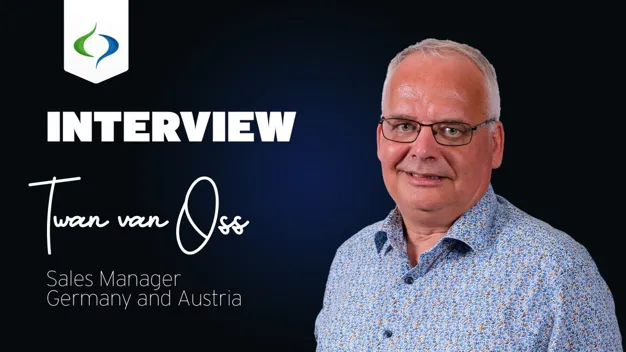In the horticultural sector, sustainability is no longer a choice but a necessity. Desch is making great strides in this area, especially in the use of recycled materials. In this article, Twan van Oss, Sales Manager for Germany and Austria at Desch, explains more about the transformation of recycled plastic into valuable and reusable products for horticulture.

In the late 1980s, Desch started using production waste, a shift from virgin to recycled materials. Back then, it was driven by cost savings, and today, because of sustainability.
Recycled plastic and post-consumer plastic waste: what's the difference?
"Recycled plastic is mainly a mix of plastic waste from various streams, such as cutting waste released during the production of, for example, butter tubs and plant labels, as well as plastic that consumers mostly offer separately as waste. Desch then processes the cutting waste from the butter tub, as well as the tub itself. Desch obtains these materials directly from the source or through traders to keep quality consistent."
"Another option is the use of 100% post-consumer waste. This is collected from waste coming from households and includes many types of plastic. Used butter tubs, soap bottles, and other plastic packaging are used to make flowerpots. The insides of discarded refrigerators are made into trays again. Post-consumer plastic has already had a life, and we turn it into new products that have another life."
How does Desch Plantpak use this waste as a resource in its products?
"'Recover®' is always made from post-consumer material. 'D-TectPlus®,' on the other hand, uses both post-consumer and other waste."
The name of the line D-TectPlus® stands for 'detectable in the recycling plant,' and the 'Plus' shows that the material floats. "This is because there used to be fillers in this, and nowadays there are none," Twan says. The name 'Recover' (made from post-consumer waste) stands for 'reclaimed plastic.'
Both the Recover and D-TectPlus brands are Cyclos HTP certified, which means they meet the highest standards of detectability and recyclability.
"Desch Plantpak produces products from recycled and post-consumer raw materials. No distinction is visible both visually and chemically after production. This is why we differentiate ourselves into products such as D-tectPlus, with a grey outer and inner layer, and Recover, which is colored through and through."
Sustainability goals and innovation at Desch Plantpak
"Desch uses more than 95% recycled material in their products. Looking to the future, Desch sees an important role for biodegradable products, such as home compostable or even soil degradable. These developments are still in full swing and represent an exciting direction for the industry."
"One of the biggest challenges is the availability of sufficient recycled material. With big players like Ikea and Lidl, for example, demanding a significant share of post-consumer material - there is an ongoing battle for these valuable raw materials."
Collaborations and Circular Economy
"Desch works closely with other companies and organizations to improve the collection and processing of recycled plastic. One notable initiative is the 'TrayC' project in Germany, where trays are collected and recycled, contributing to a closed loop in the industry."
For more information: Desch
Desch
www.desch.nl
